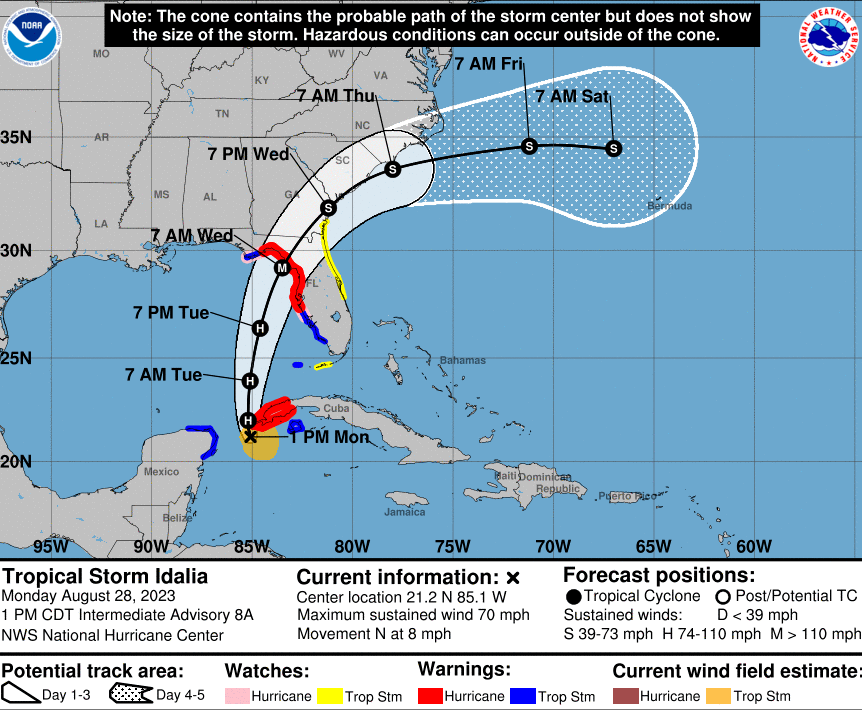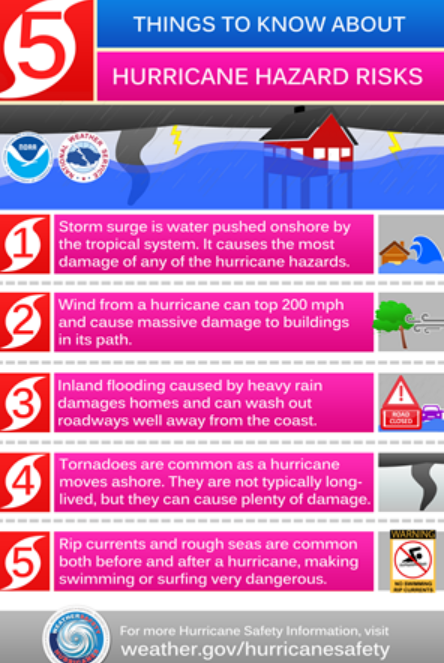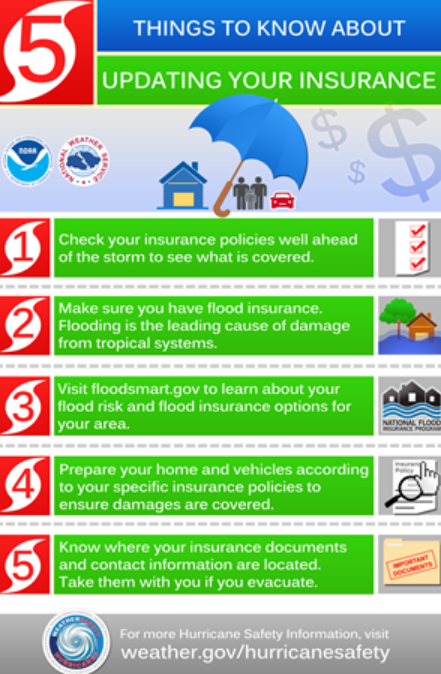What should you do in case of a bad storm? See these tips to protect yourself and property
- Oops!Something went wrong.Please try again later.
As Tropical Storm Idalia approaches, Georgia officials are urging citizens to prepare for severe weather.
On Monday, Gov. Brian Kemp ordered the State Operations Center be activated to monitor and prepare for any impact caused by Tropical Storm Idalia, which is currently forecast to make landfall on Wednesday in Florida as a Category 3 hurricane.
Meteorologists expect the storm to weaken to a Category 1 hurricane as the center moves into southeast Georgia, according to the latest predictions. Tropical storm force winds and heavy rainfall will increase throughout the morning and continue through Wednesday night.

"Though the system will likely weaken before crossing our border, we’re not taking anything for granted," Kemp wrote in a statement. "As the week progresses, I will work closely with (the Georgia Emergency Management Agency and Homeland Security), the weather service, public safety organizations, and others to ensure we leave nothing to chance."
The National Weather Service reported Monday a hazardous weather outlook is in effect for Richmond, Columbia, Aiken and Burke counties. The greatest potential for flooding will occur Wednesday and Thursday.
Georgia Emergency Management suggests citizens follow these tips to protect their property and stay safe during the storm:
What to do before a tropical storm or hurricane
Prepare a ready kit, make a family communications plan and make an evacuation plan.
Become familiar with terms that are used to identify a hurricane – be prepared to evacuate when a tropical storm/hurricane watch is issued. If local authorities advise evacuation during a tropical storm/hurricane warning, leave immediately.
Cover all windows with hurricane shutters or boards to protect them from high winds. Tape does not prevent windows from breaking.
Plan to bring in all outdoor furniture, decorations, garbage cans and anything else that is not tied down.
Keep all trees and shrubs well trimmed to make them more wind-resistant.
Fill car gas tanks in case evacuation is needed.
Plan ahead for pets.
Know the area's flood risk. If unsure, call the local emergency management agency or visit Flood Smart.

What to do during a tropical storm or hurricane
Listen to NOAA Weather Radio, watch TV, listen to the radio or check the internet often for official news and instructions as they become available.
Secure the home, close storm shutters and secure outdoor objects or bring them indoors.
Stay indoors and away from windows and glass doors. Close all interior doors.
Turn off utilities if instructed to do so. Otherwise, turn the refrigerator thermostat to its coldest setting and keep the doors closed. Also, learn how to keep food safe in an emergency.
Turn off propane tanks.
Avoid using the phone, except for serious emergencies.
Moor boats, if time permits.
Have a supply of water for cleaning and flushing toilets. Fill the bathtub and other larger containers with water.
Avoid elevators.
What to do after a tropical storm or hurricane
Stay out of flood waters and be alert for tornadoes.
Stay away from downed power lines to avoid the risk of electric shock or electrocution.
Do not return home until local authorities say it is safe. Even after the hurricane and after flood waters recede, roads may be weakened and could collapse. Buildings may be unstable and drinking water may be contaminated.

Insurance tips for Georgians
Georgia Insurance and Safety Fire Commissioner John F. King on Monday released a number of tips for Georgia consumers to protect themselves and their families before and after the storm.
King suggests Georgians follow these tips:
Before the storm, make a list of all covered items (furniture, electronics, appliances, valuables, etc). Make sure to keep an electronic copy of this list, which should include pictures.
Write down and photograph all property damage brought by Hurricane Idalia, including broken windows, damaged roofs and lost personal items.
Notify insurance companies of any damages immediately.
Do not attempt significant or permanent repairs. If it is safe to do so, cover roofs with a tarp or board up broken windows, but leave the significant repairs to the experts.
Save all receipts to file claims with insurance companies.
Beware of contractor scammers. Do not believe a contractor who says they are supported by the government. The Federal Emergency Management Agency does not endorse individual contractors or loan companies. Call FEMA toll-free at 800-621-FEMA for more information.
To reach King's office, call 1-800-656-2298."
Latest Augusta weather update: NWS hazardous weather outlook in effect as Idalia approaches
This article originally appeared on Augusta Chronicle: Officials explain how to prepare for Tropical Storm Idalia, offer tips

